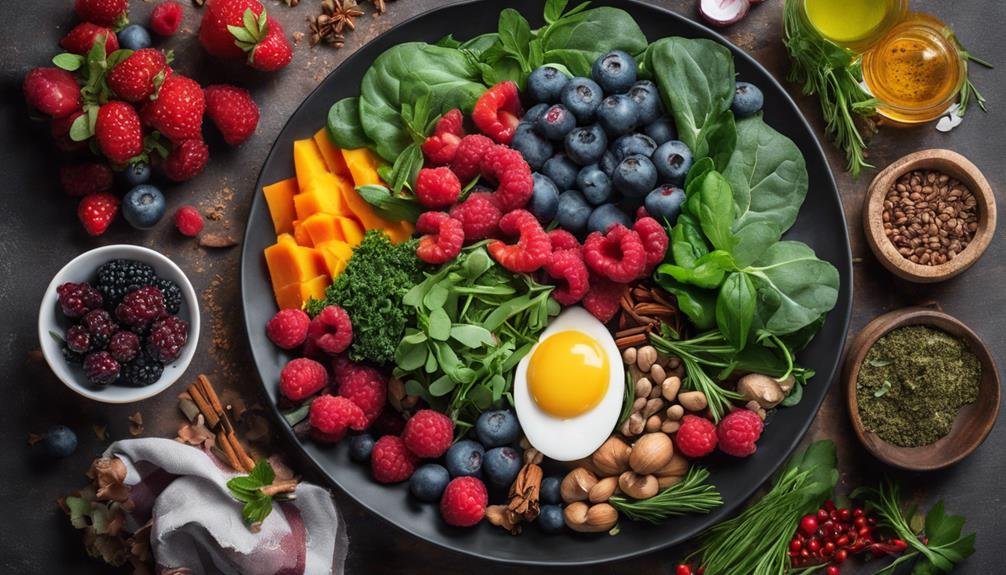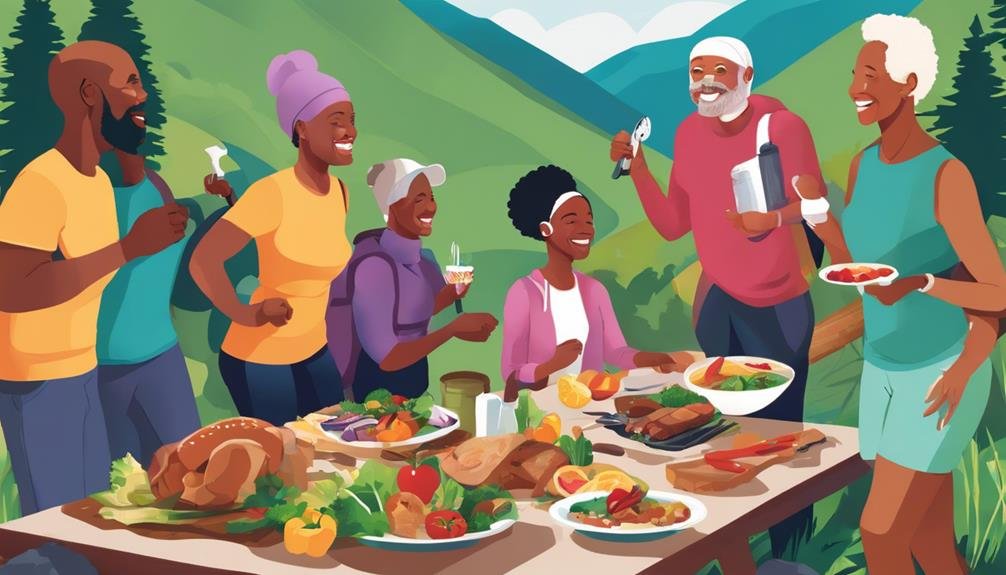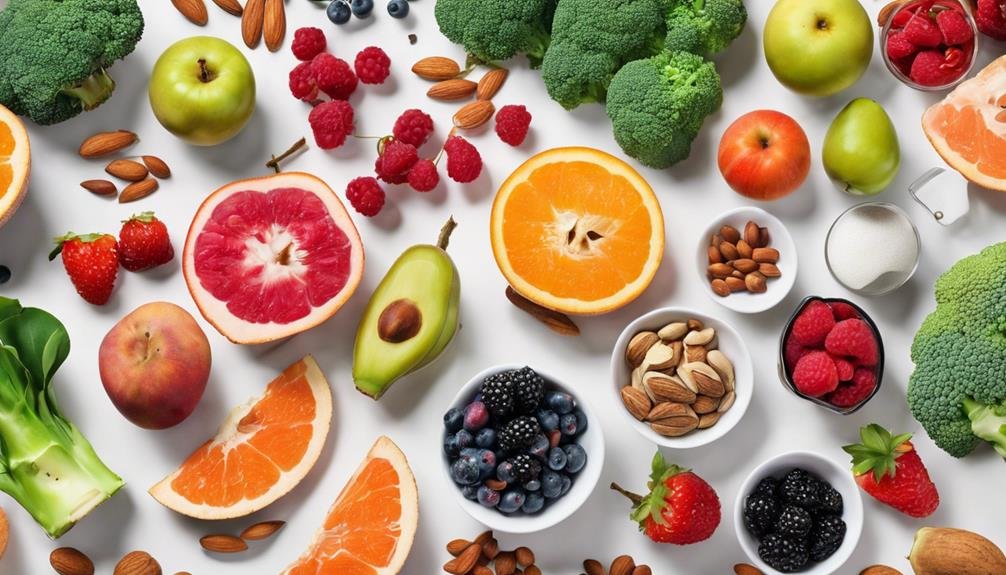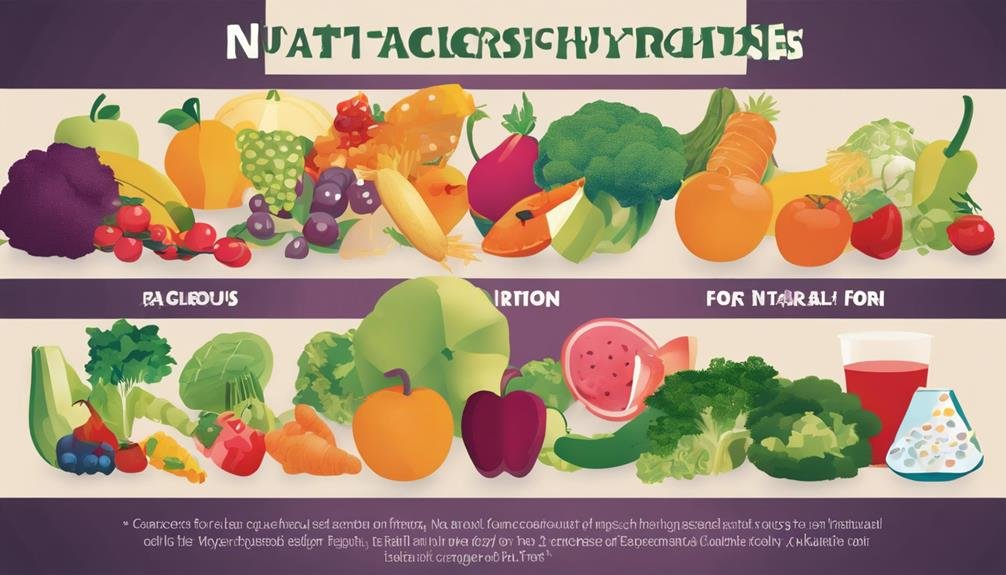When undergoing chemotherapy, your diet plays a crucial role in supporting your body's resilience and recovery. By following Paleo principles, you can provide your body with the necessary nutrients and antioxidants to aid in the healing process. But, what specific foods should you focus on to optimize your chemotherapy journey and enhance your overall well-being? Let's explore some key tips and strategies to help you navigate the Paleo diet during this critical time and empower you on your path to recovery.
Benefits of Paleo Diet for Chemotherapy
When undergoing chemotherapy, maintaining a healthy diet can play a crucial role in supporting your body through the treatment process.
One beneficial option to consider is the Paleo diet. The Paleo diet focuses on whole foods, lean proteins, fruits, vegetables, nuts, and seeds, while avoiding processed foods, grains, and sugars. This way of eating can provide your body with essential nutrients, antioxidants, and anti-inflammatory properties, which are important during chemotherapy.
The Paleo diet emphasizes foods that can help boost your immune system, reduce inflammation, and support overall health.
By incorporating nutrient-dense foods like leafy greens, berries, lean meats, and healthy fats, you can provide your body with the building blocks it needs to repair and regenerate cells damaged during chemotherapy.
Additionally, the Paleo diet can help stabilize blood sugar levels, improve digestion, and increase energy levels, all of which are crucial factors in supporting your body through the rigors of chemotherapy treatment.
Foods to Include for Nutrient Support
As you navigate your way through chemotherapy and the recovery process, focusing on nutrient-dense foods can provide valuable support to your body. Incorporating a variety of foods rich in essential nutrients is crucial during this time. Include plenty of colorful fruits and vegetables, such as berries, leafy greens, and bell peppers, to benefit from their antioxidants, vitamins, and minerals.
Lean proteins like chicken, turkey, and fish can aid in tissue repair and immune function. Healthy fats from sources like avocados, nuts, and olive oil can help reduce inflammation and support brain health.
Don't forget to include complex carbohydrates like sweet potatoes, quinoa, and squash for sustained energy levels. Bone broths are also excellent for hydration and providing easily absorbable nutrients. Additionally, herbs and spices such as turmeric, garlic, and ginger can offer anti-inflammatory and immune-boosting properties.
Foods to Avoid for Better Recovery
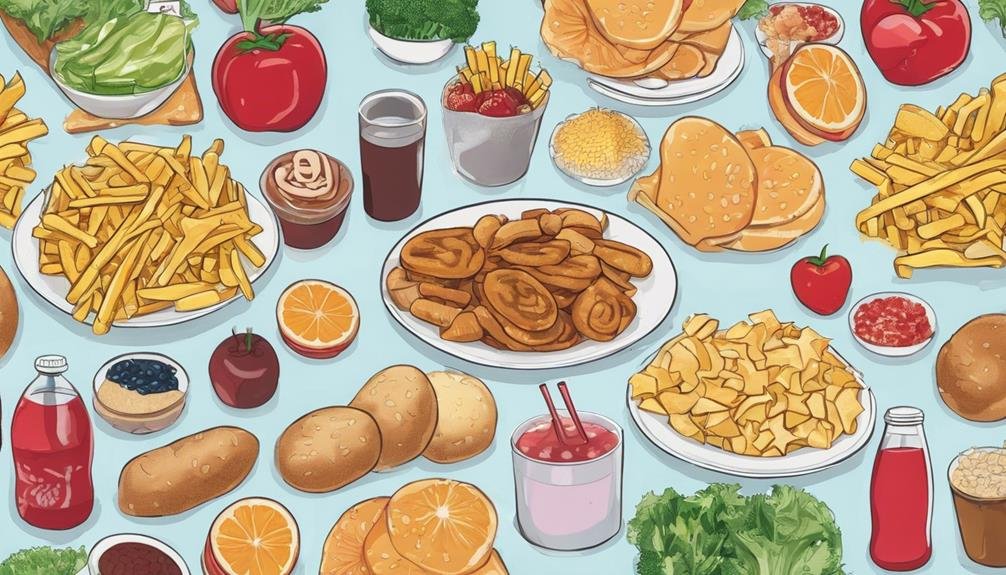
During chemotherapy and recovery, being mindful of the foods to avoid can play a crucial role in enhancing your overall well-being. Here are four items you should consider avoiding for better recovery:
- Processed Foods: These often contain high levels of unhealthy fats, sugars, and additives that can hinder your body's healing process.
- Sugary Treats: Excessive sugar intake can lead to inflammation and weaken your immune system, making it harder for your body to recover.
- Alcohol: Alcohol can interact negatively with certain medications, dehydrate your body, and impair your immune function, slowing down your recovery.
- Highly Acidic Foods: Foods like citrus fruits, tomatoes, and vinegar can be irritating to a sensitive digestive system, which is common during chemotherapy.
Importance of Hydration on Paleo Diet
Maintaining proper hydration is a fundamental aspect of following a Paleo diet, crucial for supporting your body's functions during chemotherapy and recovery. Adequate hydration is essential for overall well-being, especially when undergoing treatments that can be dehydrating. Water helps transport nutrients, oxygen, and medications throughout your body, aiding in the healing process.
On a Paleo diet, focus on consuming water-rich foods like fruits and vegetables such as watermelon, cucumbers, and berries. Herbal teas and coconut water are also great hydrating options that align with the Paleo principles. Aim to drink at least 8-10 glasses of water daily, adjusting based on your individual needs and activity level.
Dehydration can exacerbate side effects of chemotherapy, such as fatigue and nausea, so staying hydrated is key to feeling your best during treatment. Remember, every sip you take is a step towards supporting your body on its journey to recovery.
Managing Side Effects With Paleo Foods
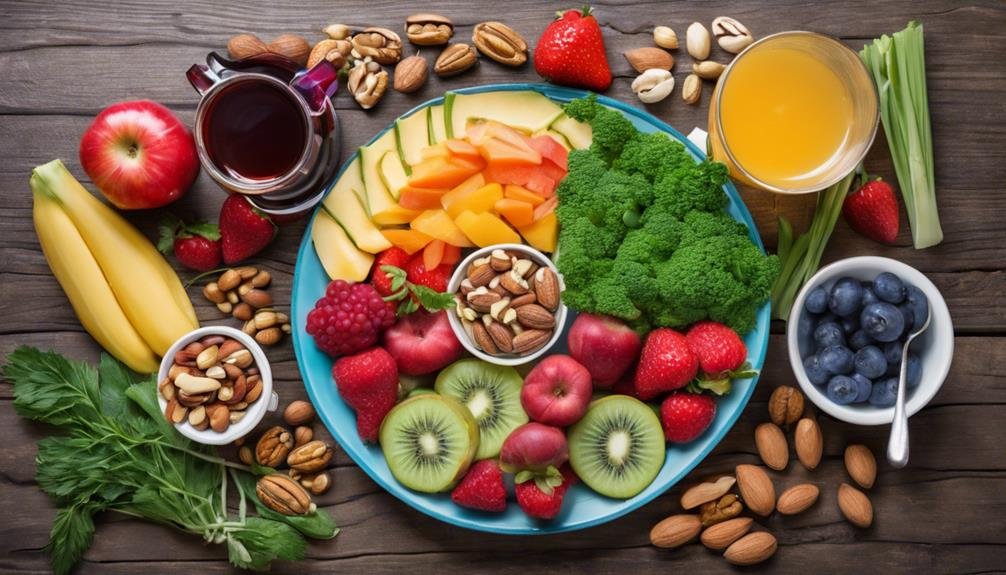
To effectively manage the side effects of chemotherapy and support your recovery journey on a Paleo diet, focus on incorporating nutrient-dense foods that can help alleviate symptoms and promote healing. Here are some tips to help you manage side effects with Paleo foods:
- Ginger: Incorporate ginger into your meals or drink ginger tea to help alleviate nausea, a common side effect of chemotherapy.
- Bone Broth: Sip on bone broth to stay hydrated and provide essential nutrients that support gut health and boost immunity.
- Turmeric: Add turmeric to your dishes for its anti-inflammatory properties, which may help reduce inflammation and promote healing.
- Probiotic-Rich Foods: Include fermented foods like sauerkraut or kombucha in your diet to support a healthy gut microbiome, which is crucial for overall health and recovery.
Meal Planning Tips for Chemotherapy
When planning your meals to support your body during chemotherapy, it's essential to focus on nutrient-dense foods that can provide the necessary energy and support for your recovery journey. Start by incorporating a variety of colorful fruits and vegetables into your meals. These foods are rich in vitamins, minerals, and antioxidants, which can help boost your immune system and aid in the recovery process.
Include lean proteins like chicken, fish, and legumes to support muscle strength and repair. Opt for whole grains such as quinoa, brown rice, and oats to provide sustained energy throughout the day.
Additionally, make sure to stay hydrated by drinking plenty of water and herbal teas. Avoid sugary drinks and excessive caffeine, as they can lead to dehydration. Try preparing your meals in advance to ensure you have nourishing options readily available, especially on days when you may feel fatigued.
Planning balanced meals won't only help you feel better during chemotherapy but also support your overall well-being throughout your recovery journey.
Snack Ideas for Energy Boost
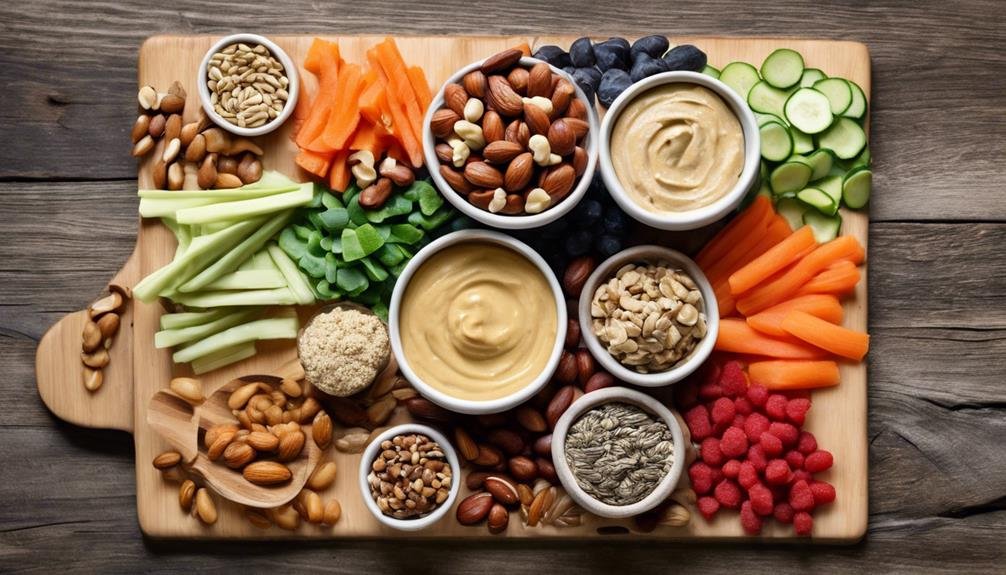
As you navigate through your chemotherapy journey, finding snack options that can provide a quick energy boost is key to sustaining your strength and vitality. When choosing snacks during this crucial time, opt for nutrient-dense choices that can support your body's needs. Here are four snack ideas that can help boost your energy levels:
- Almonds and Dried Fruit: A handful of almonds combined with some dried fruit like apricots or raisins can provide a good mix of healthy fats, protein, and natural sugars for a quick energy lift.
- Celery Sticks with Nut Butter: Spread almond or cashew butter on celery sticks for a crunchy snack that offers a balance of fiber, protein, and healthy fats to keep you feeling satisfied and energized.
- Hard-Boiled Eggs: Eggs are a great source of protein and essential nutrients. Prepare a few hard-boiled eggs in advance for a convenient and nourishing snack option.
- Chia Seed Pudding: Mix chia seeds with coconut milk and a touch of honey to create a delicious and nutrient-rich pudding that can provide a sustained energy release throughout the day.
Easy Paleo Recipes for Recovery
During the recovery phase post-chemotherapy, nourishing your body with nutrient-dense meals is vital for regaining strength and promoting healing. Easy paleo recipes can be a great way to support your recovery journey.
Start your day with a simple yet hearty breakfast by preparing a vegetable omelet cooked in coconut oil for healthy fats.
For lunch, try a refreshing salad with grilled chicken, mixed greens, avocado, and a homemade vinaigrette dressing.
As a snack, indulge in some almond butter spread on apple slices for a nutritious pick-me-up.
For dinner, consider making a comforting meal of baked salmon topped with lemon and herbs, served with roasted sweet potatoes and steamed broccoli.
These recipes aren't only delicious but also packed with essential nutrients to aid in your recovery process. Remember to listen to your body's needs and adjust the recipes to suit your preferences and dietary requirements.
Supplements to Consider During Treatment
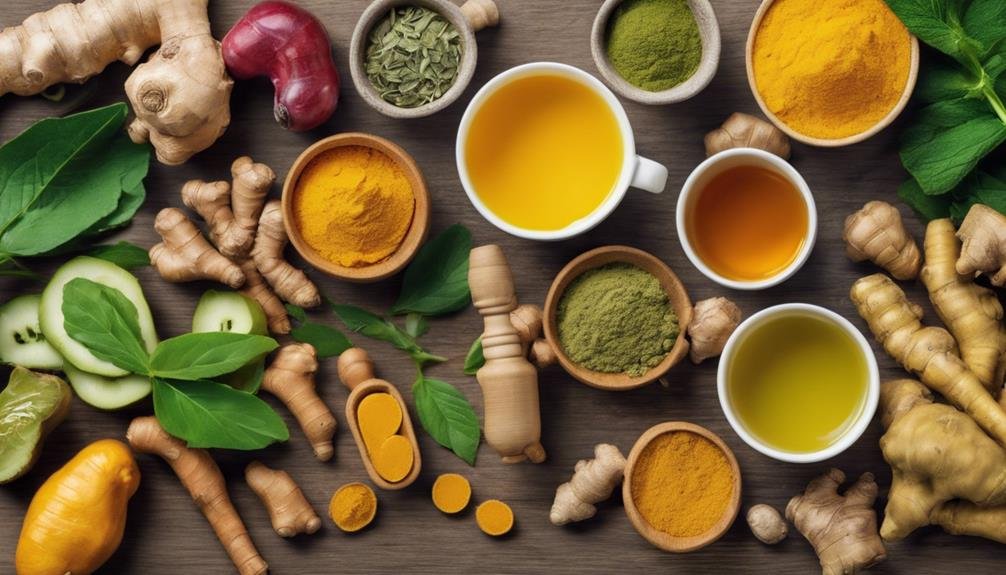
Considering incorporating supplements into your treatment regimen can be a beneficial way to support your body during chemotherapy. These supplements can help replenish vital nutrients, boost immunity, and aid in managing treatment side effects.
Here are four supplements to consider during your chemotherapy journey:
- Omega-3 Fatty Acids: Known for their anti-inflammatory properties, omega-3 fatty acids can help reduce inflammation, support heart health, and improve overall well-being. Consider adding fish oil supplements or incorporating more fatty fish like salmon into your diet.
- Probiotics: Chemotherapy can disrupt the balance of good bacteria in your gut, leading to digestive issues. Probiotic supplements can help restore this balance, improve digestion, and strengthen your immune system.
- Vitamin D: Many cancer patients have low levels of vitamin D, which plays a crucial role in immune function and bone health. Supplementing with vitamin D can help maintain optimal levels and support your body during treatment.
- Turmeric: This powerful antioxidant and anti-inflammatory supplement can help reduce inflammation, support liver function, and alleviate treatment-related side effects. Consider adding turmeric supplements or incorporating fresh turmeric into your meals for added benefits.
Mindful Eating Practices for Healing
Practicing mindful eating can be a powerful tool for promoting healing and overall well-being during your chemotherapy journey. By being present and attentive to your meals, you can enhance your body's ability to absorb nutrients and support your recovery process. Start by taking a moment before eating to express gratitude for the nourishment in front of you.
Chew your food slowly, savoring each bite and allowing your body to properly digest. Pay attention to the flavors, textures, and sensations as you eat, tuning into your body's hunger and fullness cues.
Choose whole, nutrient-dense foods like vegetables, fruits, lean proteins, and healthy fats to support your body's healing process. Avoid distractions such as screens or stressful conversations while eating, and instead, focus on the act of nourishing your body.
Mindful eating can also help you recognize emotional triggers that may lead to unhealthy eating habits, allowing you to develop a healthier relationship with food during this challenging time.
Social Support and Paleo Diet
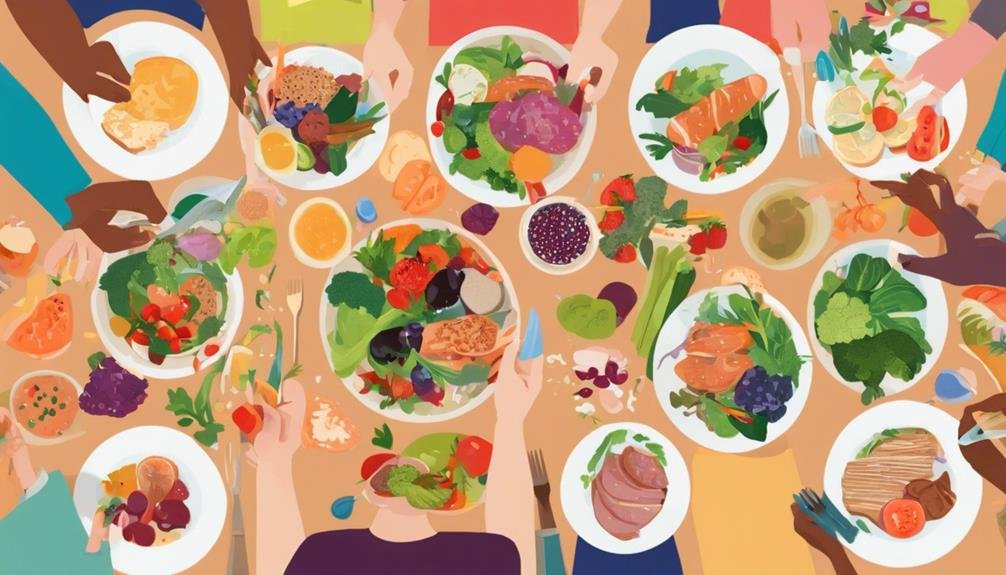
For individuals undergoing chemotherapy, navigating the challenges of maintaining a Paleo diet while also seeking social support can be crucial for both physical and emotional well-being. Here are four tips to help you integrate social support with your Paleo diet during this challenging time:
- Communicate: Share your dietary needs with friends and family, so they can support you by choosing restaurants or preparing meals that align with your Paleo diet.
- Join Support Groups: Seek out online or in-person support groups for individuals following a Paleo diet. Connecting with others who understand your dietary choices can provide valuable encouragement and advice.
- Cook Together: Invite friends or family to cook Paleo-friendly meals with you. Bonding over meal preparation can strengthen your relationships while ensuring you have the support you need.
- Express Gratitude: Show appreciation for those who support your dietary choices. A simple thank you can go a long way in fostering a supportive environment during your chemotherapy journey.
Consultation With Healthcare Provider
Consulting with your healthcare provider is a vital step in navigating your journey with chemotherapy while maintaining a Paleo diet. Your healthcare provider plays a crucial role in understanding your individual health needs, treatment plan, and how the Paleo diet can complement your chemotherapy. They can provide personalized advice based on your medical history, current health status, and any dietary restrictions you may have.
During your consultation, be open and honest about your interest in following a Paleo diet. Your healthcare provider can offer valuable insights on how to adjust your diet to ensure you're receiving the necessary nutrients to support your body during chemotherapy.
They can also monitor your progress and make any necessary modifications to your diet plan to optimize your overall well-being.
Frequently Asked Questions
Can I Follow the Paleo Diet During All Stages of Chemotherapy?
Yes, you can follow the paleo diet during all stages of chemotherapy. It focuses on whole foods, lean proteins, fruits, and vegetables, which can help support your overall health and energy levels.
However, it's crucial to consult with your healthcare team to ensure the diet aligns with your specific treatment plan and nutritional needs. They can provide personalized guidance to help you navigate any dietary restrictions or considerations during chemotherapy.
How Can I Maintain a Healthy Weight on the Paleo Diet During Treatment?
To maintain a healthy weight on the paleo diet during treatment, focus on nutrient-dense foods like lean proteins, vegetables, and healthy fats.
An intriguing statistic reveals that paleo diets can reduce inflammation by up to 35%, aiding in overall health.
Be mindful of portion sizes and stay hydrated.
Incorporate physical activity when possible to support weight management.
Consult with a healthcare provider or dietitian for personalized recommendations tailored to your specific needs.
Are There Any Specific Paleo Foods to Ease Chemotherapy-Induced Nausea?
To ease chemotherapy-induced nausea, focus on easily digestible foods. Opt for bland, non-acidic paleo options like bananas, sweet potatoes, and bone broth. Ginger can also help settle your stomach. Stay hydrated with herbal teas and small sips of water. Avoid fatty or spicy foods that may exacerbate nausea. Listen to your body and adjust your diet as needed to support your recovery journey.
Can I Still Enjoy Occasional Treats or Cheat Meals on the Paleo Diet?
Indulging in occasional treats or cheat meals can fit into a balanced paleo diet. Remember, "everything in moderation."
Opt for healthier versions of your favorite treats, like homemade paleo desserts or dark chocolate. This approach can help you stay on track while still enjoying a satisfying treat.
Be mindful of portion sizes and frequency to maintain the benefits of your paleo lifestyle while occasionally satisfying cravings.
Is It Safe to Take Herbal Supplements While on a Paleo Diet During Chemotherapy?
Yes, it's generally safe to take herbal supplements while on a paleo diet during chemotherapy. However, it's crucial to consult with your healthcare provider before adding any new supplements to your regimen. Some herbs may interact with chemotherapy drugs, affecting their efficacy. Your doctor can provide guidance on which supplements are safe and may even recommend specific ones to support your overall health during treatment. Always prioritize open communication with your medical team.
Conclusion
In conclusion, incorporating a Paleo diet during chemotherapy and recovery can be a game-changer for your health journey. By focusing on nutrient-dense foods, staying hydrated, and seeking support from healthcare providers, you can optimize your body's ability to heal and thrive. Remember, it's all about taking it one day at a time and embracing the power of Paleo to support your body's natural healing process. Stay strong and keep rocking that caveman lifestyle!
